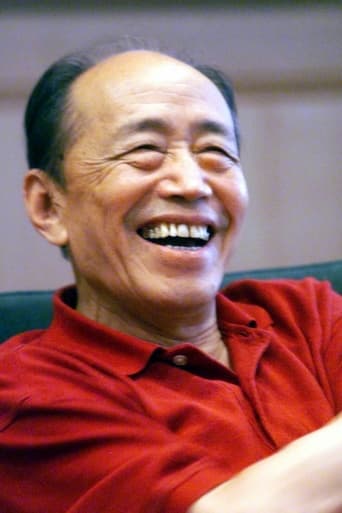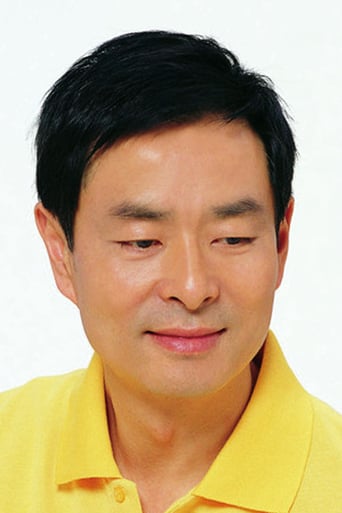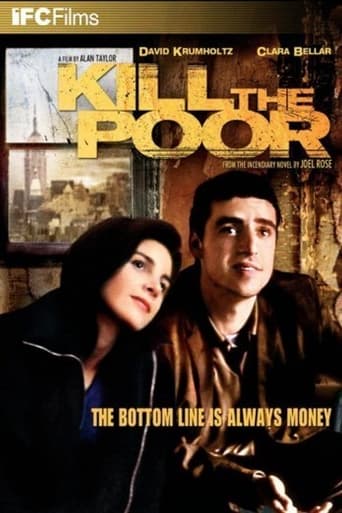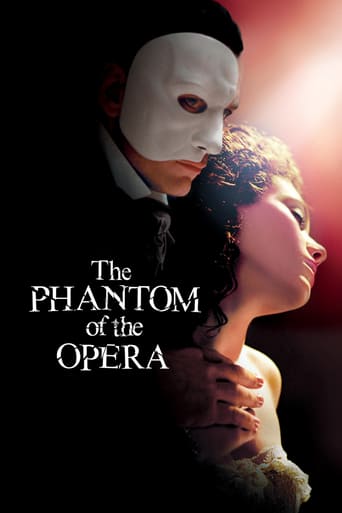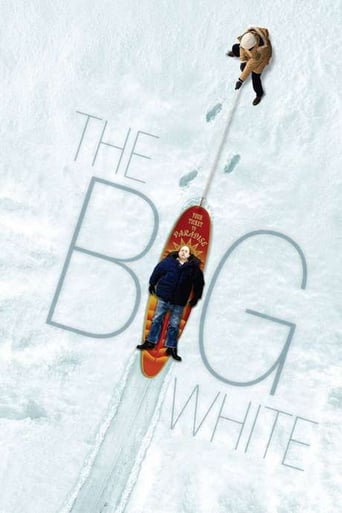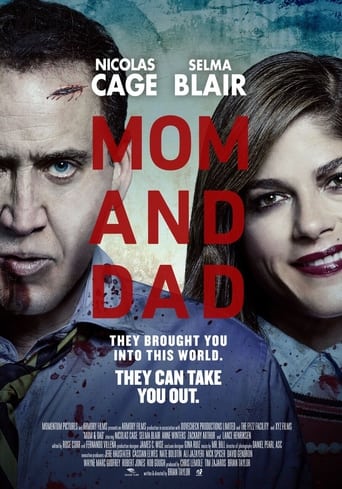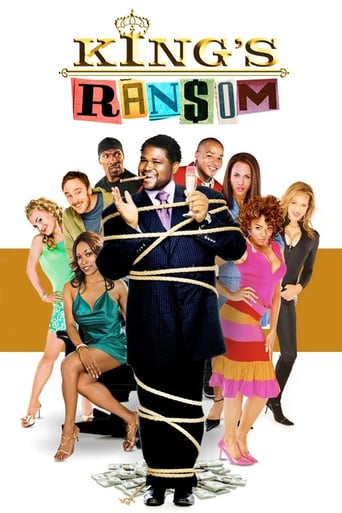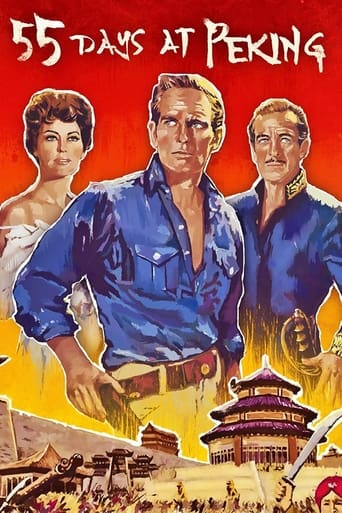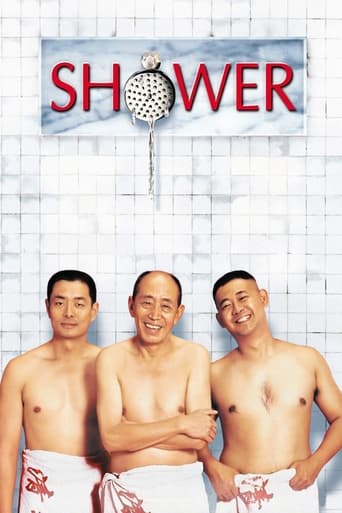
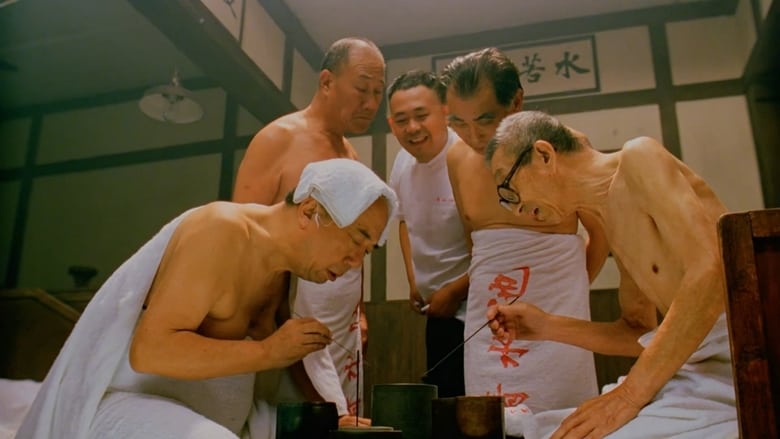
Shower (2000)
An aged father and his younger, mentally challenged son have been working hard every day to keep the bathhouse running for a motley group of regular customers. When his elder son, who left years ago to seek his fortune in the southern city of Shenzhen, abruptly returns one day, it once again puts under stress the long-broken father-son ties. Presented as a light-hearted comedy, Shower explores the value of family, friendship, and tradition.
Watch Trailer
Cast


Similar titles
Reviews
The Worst Film Ever
The performances transcend the film's tropes, grounding it in characters that feel more complete than this subgenre often produces.
It's a movie as timely as it is provocative and amazingly, for much of its running time, it is weirdly funny.
The movie's neither hopeful in contrived ways, nor hopeless in different contrived ways. Somehow it manages to be wonderful
This delighted audiences at a number of film festivals, and it is not hard to see why. Director Yang Zhang, with the help of some very nice work by the three principle actors, Xu Zhu as the father, Master Liu; Quanxin Pu as the elder son, Da Ming; and especially Wu Jiang as the irrepressible and lovable younger son, Er Ming, spins a tale that will warm the coldest heart.The film starts with a man taking a shower in an automated booth in the middle of Beijing. He puts some money in a slot, opens the door, takes off his clothes and puts some of them on a conveyor belt to be cleaned, steps into the shower and gets cleaned with brushes and squirts of water and soap as though he's a car at the car wash. This is the future symbolically speaking, and the old bathhouse we will see in the next scene is the past. Agrarian China is giving way to industrial China.Pollution? Cultural revolution hang-over? Industrialization blues? No way. What we have here is a celebration of people and their kindness and love for one another, a celebration of goodness in the hearts of men. Yet I wonder how the Chinese government views this film. On the one hand, it clearly presents a pleasant view of China and its people. It is stringently nonpolitical without criticism of the present regime expressed or implied. Yet there is the slightest sense that the good old ways are going to be replaced by something that may not be as good. I think Yang Zhang had the wisdom to just let that be as it may. Tell a story about old men at the bathhouse where they get back rubs and massages, where they tell tall tales and reminisce about the good old days, where they can relax and play Chinese chess and stage cricket fights, where the Master is a spry and wise old guy and his assistant is his son, who may be retarded or autistic, but who does his job with glee and an infectious spirit of fun and good will.Enter back on the scene the older son, Da Ming, who is polished, well groomed and taciturn. He is uncomfortable with what he sees as the unsophisticated behavior of his father and brother. He represents modern China with his tie and his briefcase, his cell phone and his education. He has only returned because he thought his father was dying. When he sees that this is not true, he packs his bags and is set to return to his wife and his career. But then a crisis ensues and it is during this crisis that Da Ming sees the value of the natural, people-centered life that his father and his brother have been living.And so Yang Zhang reconciles the old and the new, and does so in such a charming manner that I will not object, especially since his style is so neat and so carefully expressed. One of the nice things he does that I miss in most movies is the way he dovetails the subplots within the larger story so that they are resolved before the picture ends. The bathhouse regular who sings "O sole mio" in the bathhouse as the water showers down upon him, much to the delight of Er Ming, finds that he can't sing in public because of stage fright. Near the end of the film he loses his stage fright and sings thanks to some inspired help from Er Ming. And the bathhouse regular who is losing his wife because...well, he tells a tale to Master Liu before he confesses the real reason. But Liu understands and again before the movie is over, husband and wife are reconciled.This kind of "happy ending" movie-making is unusual in today artistic and international films, or in almost any film directed at adults. Some happy endings are so contrived as to embarrass not only their contrivers but their audiences. And some are so blatantly condescending that the audience is offended. Here however the audience is delighted.See this especially for the comedic performance by Wu Jiang whose warm effervescence overcomes any handicap his character may have.(Note: Over 500 of my movie reviews are now available in my book "Cut to the Chaise Lounge or I Can't Believe I Swallowed the Remote!" Get it at Amazon!)
This Chinese movie made me feel so many similarities with members of a culture I don't belong and are far from. In an almost Buddhist approach, the film helps one to relate to each character, and to the happiness of doing the simple routine things. All actors are brilliant, and Xu Hzu exudes kindness and wisdom, yet also vulnerable and mean. Er Min, the retarded brother, shows us that intelligence and wisdom are not equal, and that wisdom comes to and from the most disparate persons in this universe. A different China, this is far from the Chinese realism, yet, it has lots of humanity and realism of a different kind.Get it. You won't be disappointed.
I often felt troubled when people asked me to recommend some Chinese movies, not because there weren't any good ones, but because those good ones did not depict today's China. Some of Yimou Zhang's and Kaige Chen's movies are not only good, but also, in my opinion, among the greatest ones that the world has produced. However, the stories in those movies happened many years ago; and these years are the ones that have seen the most dramatic changes of a country in history.My trouble ended with the introduction of Xizao (Shower) in North America. The humors are Chinese styled, but the emotions are, as someone has said in his comment, universal. The values on intimate family relationships, genuine friendships, and concerns for the general public are exemplified in a society that is trying to find a balance between modernization and tradition. When economic development and new technologies menace thousand-year-old lifestyles, people, especially the elderlies, become ambivalent towards them.A country with an extraordinary history and tradition experiencing the most rapid development in the world, today's China can be a perfect set for many more good movies. I often wonder why there are so few movies like Xizao. As it has proved, you don't have to touch heavy politics to depict an authentic picture of today's China. (Kaige Chen's Together is disappointing.)One of the commentators said the movie is uneven at some points. This is probably true, and unsurprising, given that the director is not as experienced as Zhang or Chen. However, I didn't notice the unevenness because I was captured by the actors' wonderful performances. You will be easily amused by Wu Jiang's performance as Er Ming; you would be more impressed by Xu Zhu's Master Liu and Cunxing Pu's Da Ming if you understand Chinese. These are the finest Chinese actors of their respective generations.I noticed that some commentators thought the story happened in a small village. This is a misunderstanding. The set is actually Beijing. Although bathhouses like the one in the movie exist in many Chinese cities, you feel more amazed by the changes that China is experiencing when you know this story happened in a metropolis, right?If you want to understand today's China, watch this movie. If you want to understand the China before and during the Cultural Revolution (1966 to 1976), you should check out Huozhe (To Live) and Ba Wang Bie Ji (Farewell My Concubine). Artistically, Xizao may not be a masterpiece compared to the latter two, but it is definitely worth watching. In today's world, movies as warm as this one remind us of the beauty of life.
Like another reviewer said, this movie is not a heavy melodrama, but it deals with harsh realities. A very very playful movie that does not dwell for a moment. Some very good acting and some wonderful smiles as well.


